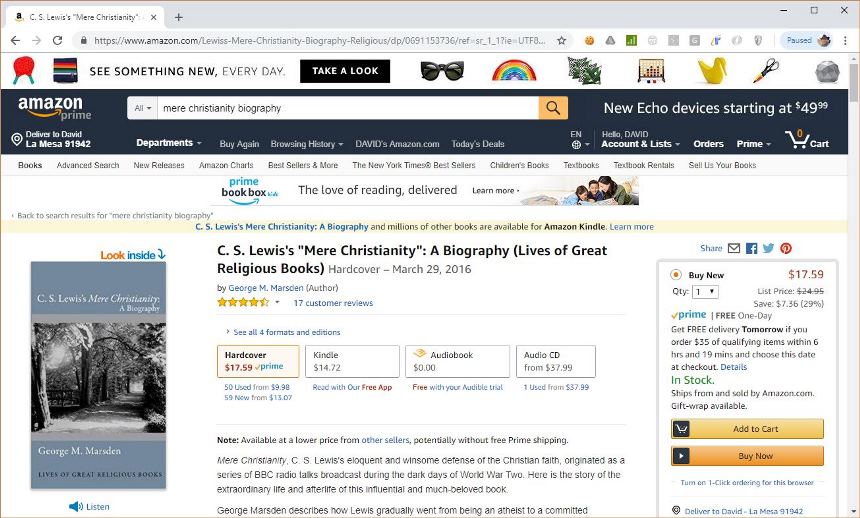Wise Words on Wednesday: Why Apologetics?

“It is commonly said that if rational argument is so seldom the cause of conviction, philosophical apologists must largely be wasting their shot. The premise is true, but the conclusion does not follow. For though argument does not create conviction, the lack of it destroys belief. What seems to be proved may not be embraced; but what no one shows the ability to defend is quickly abandoned. Rational argument does not create belief, but it maintains a climate in which belief may flourish.”
Austin Farrer, Theologian and friend of C.S. Lewis


 If you’re a member of The Bird and Baby, the CS Lewis Reading Group in San Diego, you’ll have heard me talk about
If you’re a member of The Bird and Baby, the CS Lewis Reading Group in San Diego, you’ll have heard me talk about 




 Yesterday I finished watching this lovely documentary by A.N. Wilson about C.S. Lewis and, in particular, his work as a poet…
Yesterday I finished watching this lovely documentary by A.N. Wilson about C.S. Lewis and, in particular, his work as a poet…